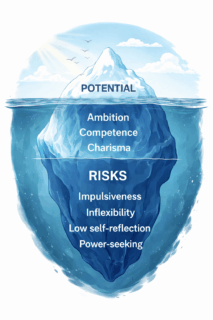
With a recent change from “organization chooses” to “employee chooses”, another factor that particularly affects organizations has emerged – counteroffers. Although sometimes candidates receive counteroffers early in the recruitment process, more often it happens during the final stages, when the process has already come a long way. This means that in the case of a counteroffer, organizations not only lose a potentially suitable candidate but also lose time, as the entire recruitment process needs to start anew.
Our experience working with different organizations shows that the key factor that helps against counteroffers during the recruitment process is building a connection with the candidate throughout the process. We share several advices that can help create and maintain this relationship during the recruitment process, while also reducing the risk of a counteroffer:
- During the recruitment process, invite the candidate for at least one face-to-face meeting. Direct interaction is ALWAYS better than remote meetings or phone calls. Of course, online meetings can save time, but building a relationship requires personal interaction.
- Maintain constant communication with the candidate. It is still believed that contacting candidates should be limited to specific information only. Even better, when that information is positive, as no one likes to deliver negative news. However, this is a mistaken belief and can cause significant harm to the selection process. Remember that while you are not communicating with the candidate, other companies likely are, and they might establish a connection with a potentially suitable person during your silence.
- Present the offer directly. Here we can speak from our own experience. In the final stages of the recruitment process, we often receive the question from clients – should they present the offer, or will we do it? And our answer is – it is always, ALWAYS better when the hiring manager presents the final offer. Not because we dislike doing it – on the contrary, it’s like harvesting after intensive care of a plant. But it is the last step in a consistent relationship-building process that further helps manage the risk of a potential counteroffer.
Therefore, build a connection with candidates from the first meetings, because if you don’t do it, other companies will. And if it happens that you are inexperienced in the recruitment and don’t want to make mistakes – trust recruitment specialists and gradually engage in communication with the candidate so that when the time for the offer comes, you can personally deliver the exciting news to the potential future employee. Trust us, any effort in building a relationship, even seemingly minimal, will be genuinely appreciated and valued from the candidates’ perspective.







